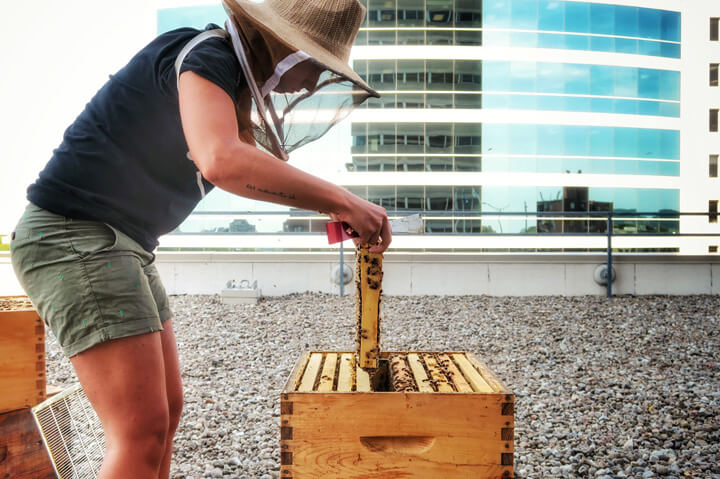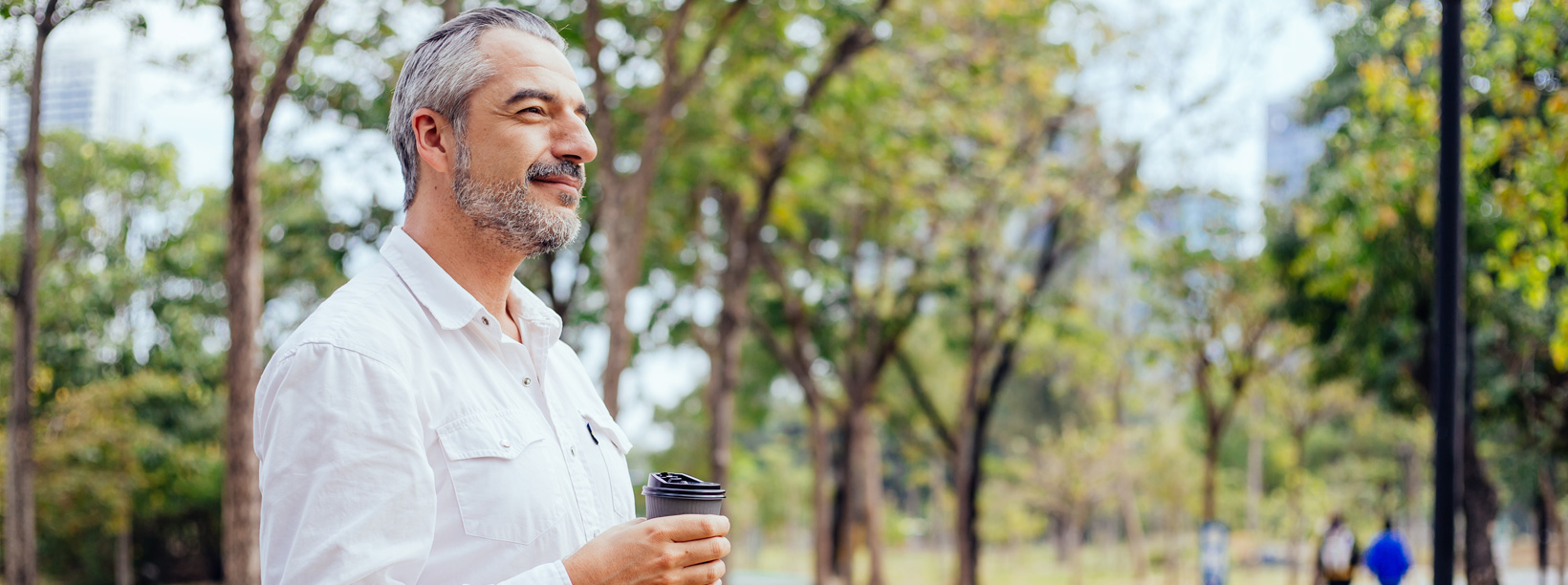Sustainable development: 4 inspiring examples in Québec
Great ways to reduce the impact of economic activity on the environment, because every little thing counts. If we work together, we can make a difference.
Sustainable development. You've probably heard of it, but what does it really mean? Sustainable development is development that meets current needs without jeopardizing the ability of future generations to meet their own economic, social, and environmental needs.
It also means that investing in our communities, businesses, and green initiatives is part of a sustainable development approach. At the Fonds, we believe it's important to generate wealth in Québec; to create, maintain, and protect jobs outside the major cities; and to protect our environment.
In recent years, people, organizations, and companies have been giving a new prupose to completely unexpected and highly useful products, providing great examples to follow. Get inspired with these 4 smart ways of reducing the impact of economic activity on the environment.
1. Turning waste into fuel
Rather than sending non-recyclable waste to landfills, some companies have pioneered ingenious ways of converting it into ethanol and methanol. The chemicals are then used to produce biofuels, making us less dependent on fossil fuels such as oil, natural gas, and coal and reducing greenhouse gas emissions in the process. Fossil fuels release particles that pollute the atmosphere when they are burned. What's more, their supply is not endless. That's why it's so important to find alternatives.
In building the largest tomato greenhouse in Québec, Productions Horticoles Demers was also investing in sustainable development. The facility is near one of the province's largest biogas-producing landfill sites. These biogases fuel the engines of a power plant that the owners of the landfill site built in Drummondville. The heat from the engines is recovered to heat the greenhouse. That means that Demers doesn't have to use fossil fuels to maintain the ambient temperature required to grow tomatoes, which keeps 26,000 tonnes of greenhouse gases out of the atmosphere every year.
And alcohol into sanitazers
For their part, the Brasseurs du Nord - Bière Boréale decided, in response to the COVID-19 crisis, to send their beers intended for bars and restaurants to Québec distilleries so that they could transform the alcohol into a disinfectant.
One man's trash is another man's treasure, as the saying goes. Until very recently, who knew that treasure was biofuel?
2. Making clothes out of plastic

Plastic waste is extremely harmful to the environment, taking over 400 years to decompose. Researchers have successfully developed techniques for transforming plastic bottles and fishing nets into a textile that can be used to manufacture athletic or insulating wear. The durable, breathable material is gaining ground with clothing manufacturers. The sustainable development trend is also hitting the accessory manufacturing sector. For example, in Québec, New Look offers glasses frames made of plastic recovered from the ocean. Green and high performance—a potent pairing.
3. Raise a recycled beer bottle
Next time you serve beer to your guests, just think—you're not only quenching their thirst, you're also helping out the planet. In Québec, all returnable glass containers brought back to their point of sale are carefully cleaned then reused at least once, depending on their condition. And it's not just beer bottles. The same goes for kombucha bottles, some maple syrup bottles, and more.
Montréal is gradually banning single-use plastic items. The ban doesn't affect the rest of Québec, but it's setting a good example.
4. Putting urban roofs to good use

In recent years a number of initiatives have been launched to maximize the potential of urban spaces: crop production on supermarket roofs, rooftop beehives to help pollinate nearby trees and plants, and more. Some cities have even introduced eco-grazing, bringing sheep into parks. These are all great ways of promoting biodiversity and making more room for plants, insects, and animals.
Fonds de solidarité FTQ has decided to get in on the action by keeping four hives on the roof of its headquarters. 550 jars of honey were harvested, and they sold out in a few short hours. In the first year, the proceeds from the sale were used to participate in the sustainable development project of a school in the Villeray neighbourhood in Montréal. Since then, the profits have been donated annually to a non-profit organization.
We can all protect the environment
The Fonds is investing in the planet's future by promoting green values that reduce its environmental footprint. We support local businesses that are committed to sustainable development, just like us.
- We've vowed to reduce the carbon footprint of our investments in listed companies by 25 percent between now and 2025.
- We refuse to finance the exploration and use of hydrocarbons in Québec.
- Investments with the Fonds allowed for the acquisition of 200,000 hectares of forest to help fight climate change.
It's encouraging to see local organizations, businesses, and residents working hard to give a second life to often-unappreciated items such as plastic, waste, and neglected urban rooftops. It's also heartening to know that everyone can contribute to sustainable development with the three Rs—reduce, reuse, recycle. You can also opt for food and goods produced closer to where you live to reduce the number of kilometres travelled, even when you shop online!



